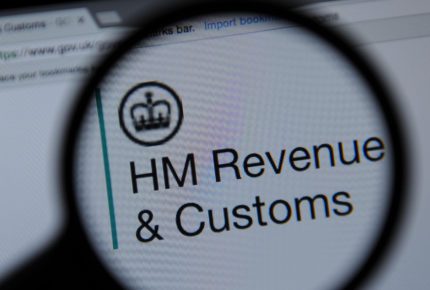

Watch any popular movie about the stock market and at some point, one of the characters is bound to engage in, or talk about, insider dealing. Insider dealing, also known as inside trading, is not just a shady way to make a quick buck on the markets; it is actually a very serious financial crime, punishable by up to 7 years’ imprisonment and an unlimited fine.
If you have been charged with insider dealing, you are likely very concerned not just about any punishments you might face in the judicial system, but also about the longer-term consequences it could have on your trading career if you get a professional ban. In this article, we look at the offence of insider trading and answer some of the most common questions we get about the process and punishment of this crime.
What is the meaning of insider dealing? Is insider trading a crime?
Insider dealing is committed when a person uses insider information (that is, information not – or not yet – known publicly, and that would affect the price of the asset or security traded if it were made public) to acquire or dispose of a financial instrument to which that information relates. In other words, a crime is committed when somebody trades using information that they are privy to, which the rest of the public is not privy to, giving them an unfair advantage.
For example, assume a company executive knows that the company is about to announce the failure of a new project, and the share price of the company is likely to go down as a result. If the executive places a trade to sell off their shares before the price drops, they are likely to be prosecuted for insider dealing, as they used inside information to make their decision to sell, and other shareholders will not have been aware of that prior to the announcement.
To prosecute someone for insider dealing, the prosecution must prove that the trader:
- used inside information that is price-sensitive in relation to shares;
- dealt shares related to the inside information; and
- traded on a regulated market or via a broker.
Insider dealing is prohibited by law in the UK. Under Part V of the Criminal Justice Act 1993 (CJA), criminal liability may be imposed for the act of insider dealing itself, along with encouraging others to commit insider dealing, and otherwise improperly disclosing inside information.
What kind of offence is insider dealing?
Insider dealing is a serious financial crime, and because it is often committed by finance professionals (traders, fund managers, and so on) who wear suits, it is described as a ‘white collar’ crime. Offences closely related to insider dealing may include fraud, cybercrime, and money laundering.
Is insider dealing a criminal OR civil offence?
Insider dealing is a criminal offence, but it may also have civil consequences. This means that someone found guilty of insider dealing could simultaneously be prosecuted and punished by the justice system and be sued privately in the civil courts for their actions. There may also be civil consequences for the individual, such as receiving a ban from trading from professional conduct authorities.
Who prosecutes insider dealing?
Insider dealing may be prosecuted by one or more of several authorities in the UK that have responsibility for different types of financial crime. The Crown Prosecution Service (CPS) has prosecutorial authority over insider dealing, as does the Financial Conduct Authority (FCA), the Serious Fraud Office (SFO), and the Prudential Regulation Authority (PRA).
How do insider traders get caught?
There are several ways that an inside trader may get caught. These include:
- Whistleblowers. Individuals inside or outside the alleged perpetrator’s organisation may report the trader for insider dealing. The identity of the whistleblower may or may not be known.
- Complaints. When a group of traders loses a significant amount of money, it is almost guaranteed that they will seek a reason for that loss outside of normal market moves, and they may point the finger at big stakeholders whose trades have a knock-on effect on the price of the relevant asset or security. In certain circumstances, it is appropriate for authorities to investigate, and they may uncover insider dealing if the big stakeholders are trading events that other traders do not know about.
- Financial technology. Like other countries, the UK has sophisticated financial monitoring technologies that can detect unusual trades, especially around key market events like earnings reports, merger and acquisition announcements, and economic report release dates. Algorithms can detect suspicious trades and financial analysts are then able to conduct further investigations to determine whether anything illegal was happening to make markets move the way they did.
What happens if you get caught insider trading?
Exactly what happens when you get caught insider trading depends on the method of detection (i.e. whether someone reported you, or whether your trades were flagged by monitoring technology) and the prosecuting authority in charge of the investigation.
It is, however, very difficult to say exactly what will happen in any given investigation because authorities want to keep their methods of detection and investigation under wraps to prevent people from circumventing them or otherwise finding loopholes.
Your trading accounts may be frozen, or you may be permitted to keep trading while under investigation. Likewise, you may be restricted in your financial transactions (even personal ones from your personal bank accounts), or you may not. Everything depends on the nature of the alleged crimes and what types of evidence the prosecuting authority needs to obtain.
For some traders, there is no indication at all that they are under investigation, nor any notification that one has been commenced or ceased. Indeed, for many, the first thing they know about an investigation having taken place is when a charging decision has been made and they are notified by the relevant authority.
What is the maximum penalty for insider dealing?
As it stands, the maximum sentence for insider dealing under the CJA is 7 years’ imprisonment and an unlimited fine. The UK government has, however, passed the Financial Services Act 2021 (FSA), and when that legislation finally comes into force (a commencement date has not yet been set), section 31 of that statute will increase the maximum sentence to 10 years’ imprisonment.
Are there any defences to insider dealing?
Yes, there are some limited defences to insider dealing. If the defence can prove any of the following is true, then the defendant may be acquitted of all charges:
- that the defendant was not expecting the sensitive information to glean a profit;
- that the defendant was under the impression the information was widely known; or
- that the defendant would have bought or sold the same shares even without access to the private information.
These defences, as with other defences in criminal law, rely heavily on producing evidence to support such claims. In relation to these defences, evidence may include personal or professional notes, recorded meetings/conversations, text messages and emails, trading records, and trading plans.
What does the term pump and dump mean?
A pump and dump occurs when an influential market participant (for example, a hedge fund owner or a famous trader with a huge social media following) purchases a large amount of an asset and then heavily promotes it – usually using false information – to encourage others to buy it. The influx of buyers makes the asset scarcer, hence the price goes up. When the price has increased to a certain level, the ‘pumper’ sells off their large stake for a profit, and the resultant flooding of the market with new availability makes the price drop, leaving the rest of the buyers only able to sell at a much lower price (and usually forcing them to take a loss in the process).
Pump and dumps are not strictly insider dealing; they are more a form of market manipulation.
What is a wash trade in stocks?
Wash trading occurs when investors buy and sell stocks at the same time to effect market manipulation. This is an illegal act in itself and may form part of a broader insider dealing scheme.
Is front running insider trading?
Front running is similar to insider trading but is distinct in key respects. Front running typically happens in a brokerage where a broker (or broker’s associate) uses knowledge of an upcoming client trade to place an order before the trader’s order actually gets filled. Front runs usually happen to take advantage of market movements anticipated as a result of the upcoming client trade (for example, if a client trade is going to be big enough, it may affect the price of the underlying asset or security, so the broker can ‘get in there first’ and then benefit from the anticipated price movement).
Where to get more help?
If you need help defending an insider dealing or insider trading charge, get in touch with the experts at Stuart Miller Solicitors without delay. Our expert team has decades worth of experience defending complex financial crimes, and we might even be able to get your case dropped before it goes to court. Contact us for a free no obligation consultation today.
OUR COMMITMENTS TO YOU:
-
Responsive
A legal expert will consult you within 24 hours of making an enquiry.
-
Empathetic
We will always treat you with trust, understanding and respect.
-
Specialised
Your case will be handled by an expert who specialises in your type of offence.
-
Proactive
We will take early action to end proceedings as soon as it is practically and legally possible to do so.
-
Engaged
You will be kept updated on your case at all times. We will provide a named contact available to answer your questions.
-
Caring
We understand this is a difficult and stressful time for you and your family. Our team will support you every step of the way.
-
Tenacious
We will never give up on your case. We fight tirelessly to get you the best possible outcome.

